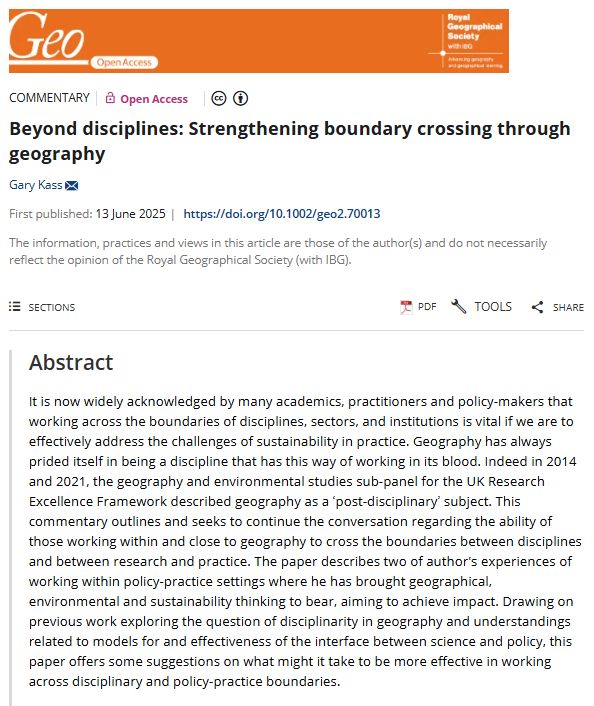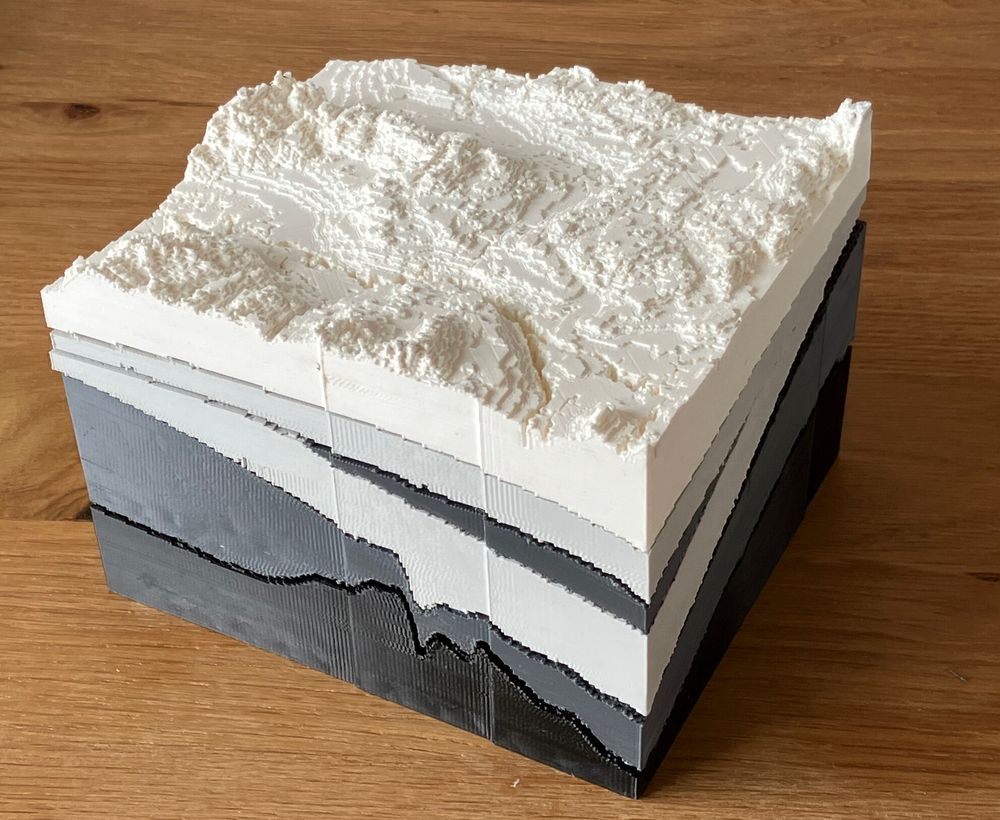by Le Yu
'From maps to models: Participation and contestability in the dynamic management of natural resources' by @calebscoville.bsky.social et al.
This paper compares how participation is conceived in static vs dynamic ocean management.
doi.org/10.1002/geo2... #geosky

Reposted by: Le Yu
doi.org/10.1002/geo2... (open access)


by Jeremy J. Schmidt — Reposted by: Le Yu
by Le Yu
'Between dunes and estuary: Forecasting mangrove forest change on primate culture and isolated livelihoods in Maranhão, Brazil' by Andrea Presotto et al.
doi.org/10.1002/geo2... #geosky

by Le Yu
'Urban oases and spatial injustices: Community gardens in the Cape Flats through a Lefebvrian lens' by Tinashe P. Kanosvamhira
This paper explores how gardeners in Cape Town, South Africa, transform neglected land as and everyday act of urban spatial justice.
doi.org/10.1002/geo2...

Reposted by: Le Yu
The editorial process has been amazing - so thankful to the team for offering both very meaningful feedback and being fair to us.

by Le Yu
'Everything about climate change is disproportionate: Principles for spatial justice in urban climate action' by J.E. Goncalves, N. Narendra & @trivikrama.bsky.social
doi.org/10.1002/geo2... #geosky

by Le Yu
by Le Yu — Reposted by: Katharine Hayhoe
'Assessing the carbon sequestration potential of church forest and their implication for climate change mitigation in Jabitehinan District, Ethiopia' by Addisu Bitew Birhanie et al.
doi.org/10.1002/geo2...

by Le Yu
'Integrating spatially disaggregated stakeholders' knowledge and opinions to enhance water governance in the Murray–Darling Basin' by Paul Hong et al.
This study examines stakeholder perspectives on Murray-Darling Basin policies in Australia from 2009-2021.
doi.org/10.1002/geo2...

by Le Yu
'Decoding Brazil's bean belt: Spatiotemporal patterns, production systems and the pulse of bean production (2011-2022)' by Clever Lucas Aguilar et al.
This paper maps the key bean production areas in Brazil in the context of changing climates & food security.
doi.org/10.1002/geo2...

by Le Yu
'"Quiet" green community innovations at the interface of public and private ownership in an old neighbourhood in Zhengzhou, China' by Yanhui Shi et al.
This paper examines informal urban gardening practices within a 70-year-old neighbourhood in Zhengzhou.
doi.org/10.1002/geo2...

by Le Yu
'Impact in the energy social sciences and humanities: How we matter matters' by @sidsareen.bsky.social et al.
doi.org/10.1002/geo2... #geosky #geo
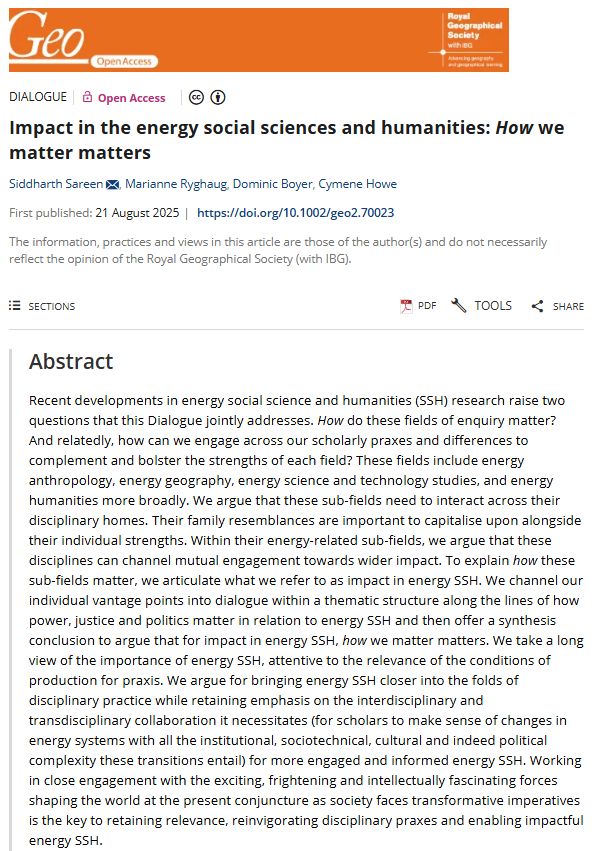
by Le Yu
by Le Yu
by Le Yu — Reposted by: Le Yu, Jenny Pickerill
This panel brings our editors in conversation with Kathryn Yusoff, James Dyke, Ankit Kumar & Lynda Yorke on 'The Future of Environmental Geography'.
🕐14:40
📍Teaching & Learning Building: Lecture Theatre 1 (& online)
by Le Yu
'"Fine, you made your energy, but how much did we have to pay for this?" Embracing situated energy ecologies for pluriversal futures' by @shayanshokrgozar.bsky.social & @sidsareen.bsky.social
doi.org/10.1002/geo2... #geosky #geo

Reposted by: Le Yu, Markus Heße, Sarah Marie Hall , and 1 more Le Yu, Markus Heße, Sarah Marie Hall, Katherine Brickell
🚌You can request free bus travel around Birmingham during the week of the conference - just complete the form below by Sunday 17th August.
Geographers please share!
forms.office.com/pages/respon...
Reposted by: Le Yu, Jenny Pickerill, Katherine Brickell
On 26-29 August, we'll welcome 2,000+ geography professionals to the University of Birmingham for 400+ sessions, talks and events covering all types of geographical science. Learn more: http://bit.ly/4lgkPnk
📷: University of Birmingham

by Le Yu
'Enhancing expert elicitation techniques through participatory mapping: Application to marine environment assessments in Palawan, Philippines' by Billy Tusker Haworth et al.
doi.org/10.1002/geo2... #geosky #geo
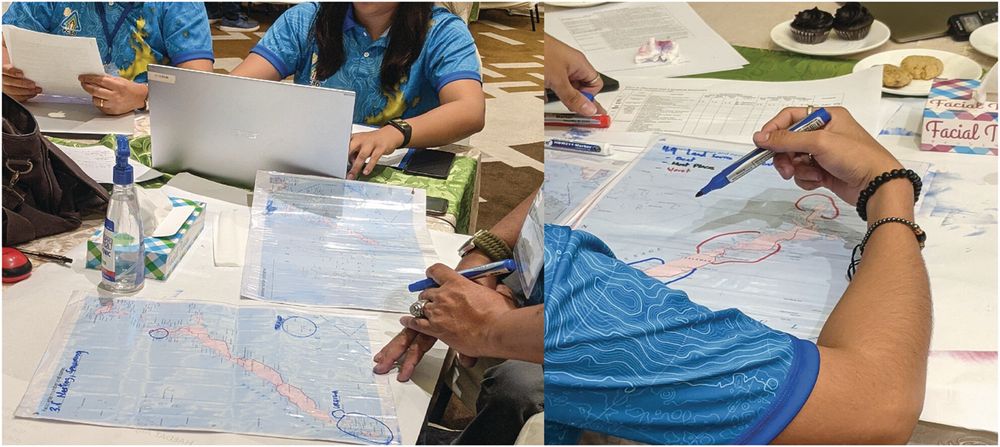
Reposted by: Le Yu, Danny Dorling
We love all things geographical, and as a Society we support geography and geographers across the world 🌍
Follow us for updates, events, opportunities and more 📣
Learn more about our work on our website 👉 https://www.rgs.org/
📷 Matt Chung

by Le Yu
Thank you to everyone who has chosen to publish with us & we look forward to working with more of you over the coming years
rgs-ibg.onlinelibrary.wiley.com/page/journal... 3/3
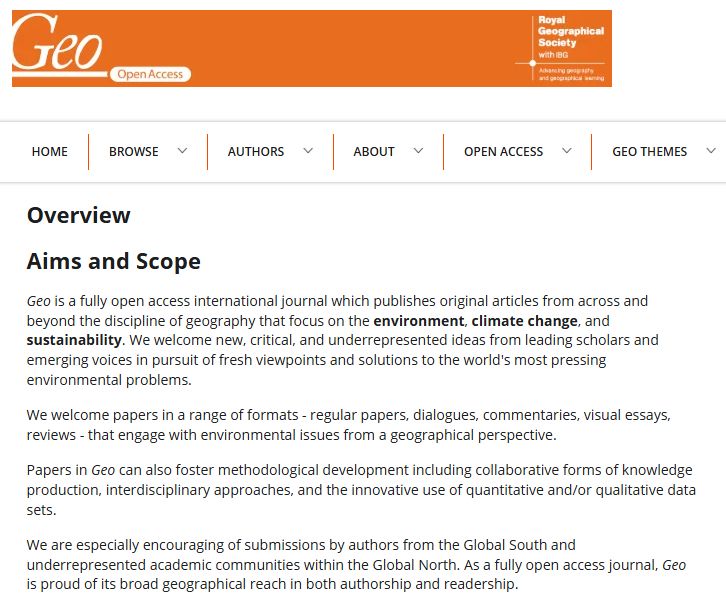
by Le Yu
rgs-ibg.onlinelibrary.wiley.com/page/journal... 2/3
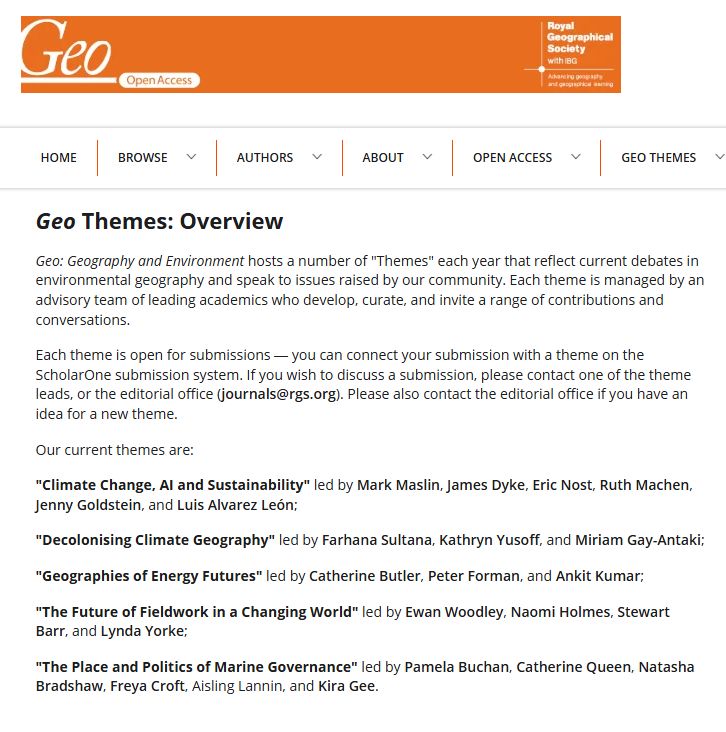
rgs-ibg.onlinelibrary.wiley.com/journal/2054... 1/3
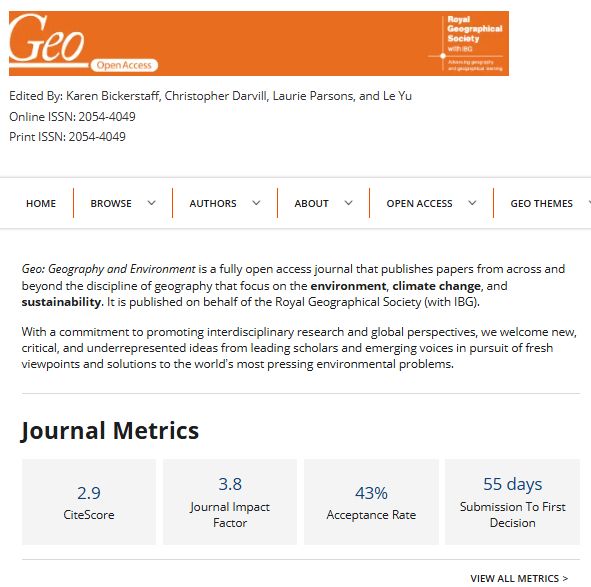
by Le Yu
'Poverty alleviation in fishing communities affected by oil production in Ghana: Does income diversification matter?' by Akwasi Mensah-Bonsu et al.
This paper investigates the impacts of fishing bans near offshore oilfields in Ghana on coastal livelihoods.
doi.org/10.1002/geo2...
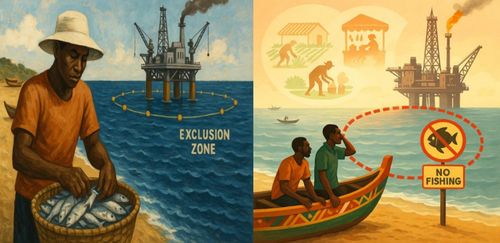
by Le Yu
'Combining scientific and local knowledge to understand climate change effects in high mountains: A case study from Porshinev Jamoat, Tajikistan' by Aslam Q. Qadamov et al.
doi.org/10.1002/geo2... #geosky
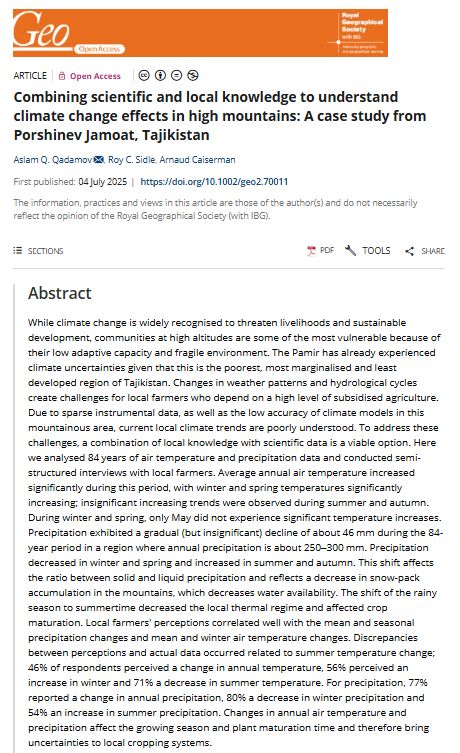
by Le Yu
'Spatiotemporal dynamics of vegetation cover and drought conditions in West Darfur, Sudan: Implications of climate variability and future projections' by Abdalrahman Ahmed & Kornel Czimber
doi.org/10.1002/geo2... #geosky
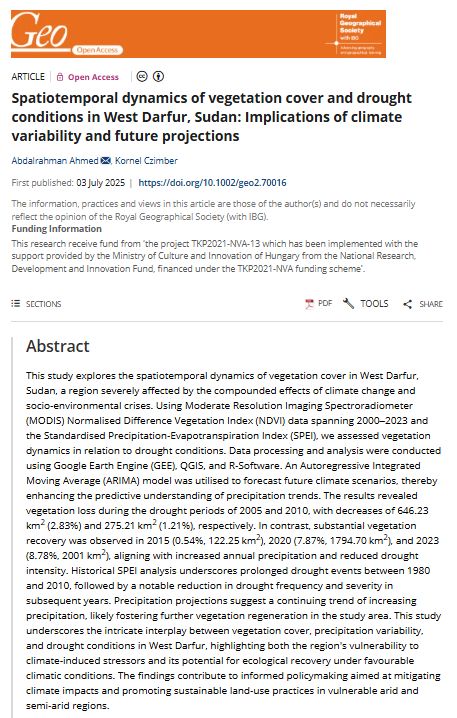
by Le Yu
'Muddying the grounds of environmental justice in the Pacific mangroves: From recognition to feeling for justice at the food-climate nexus' by Heide K. Bruckner
This paper is part of a forthcoming Special Section on the political ecologies of islands.
doi.org/10.1002/geo2...
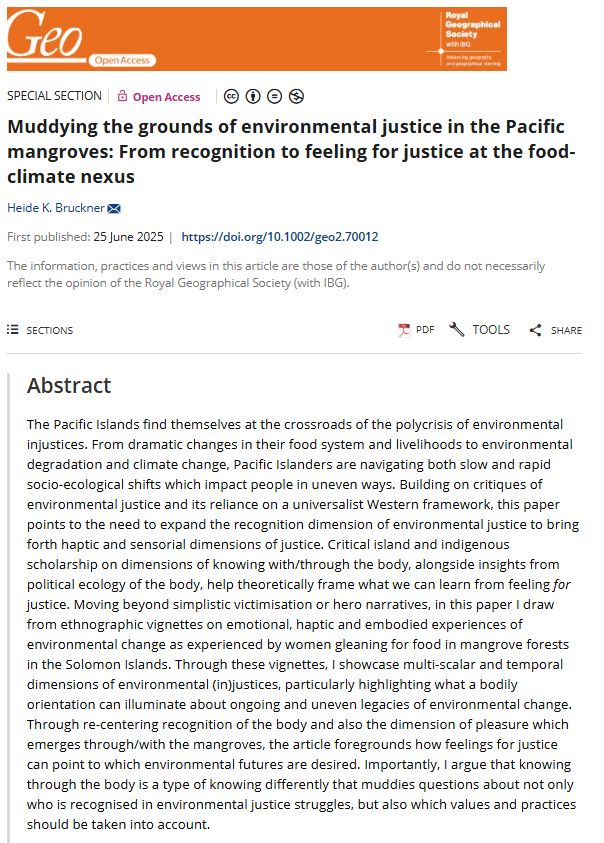
by Le Yu
'Beyond disciplines: Strengthening boundary crossing through geography' by Gary Kass
doi.org/10.1002/geo2... #geosky
